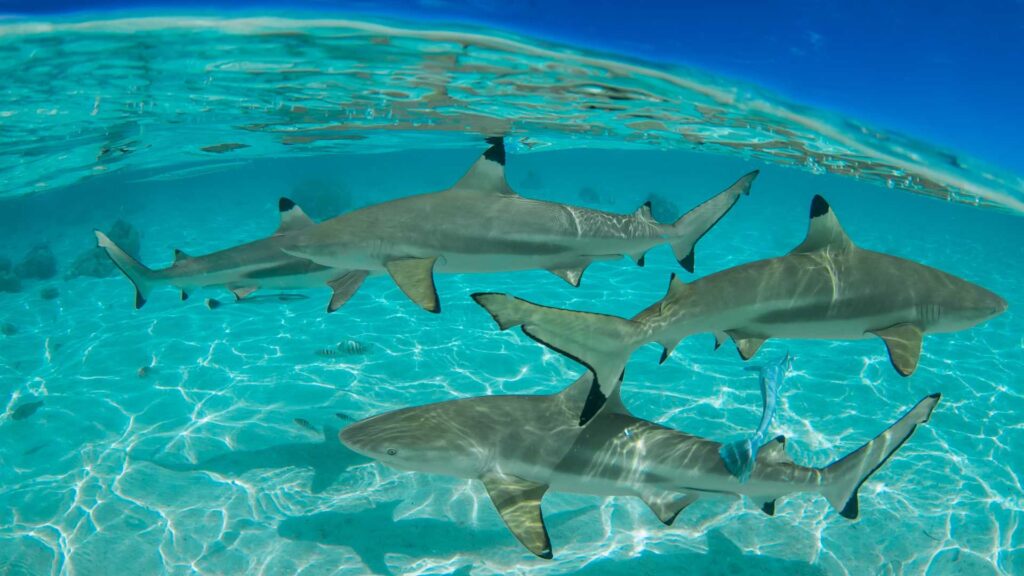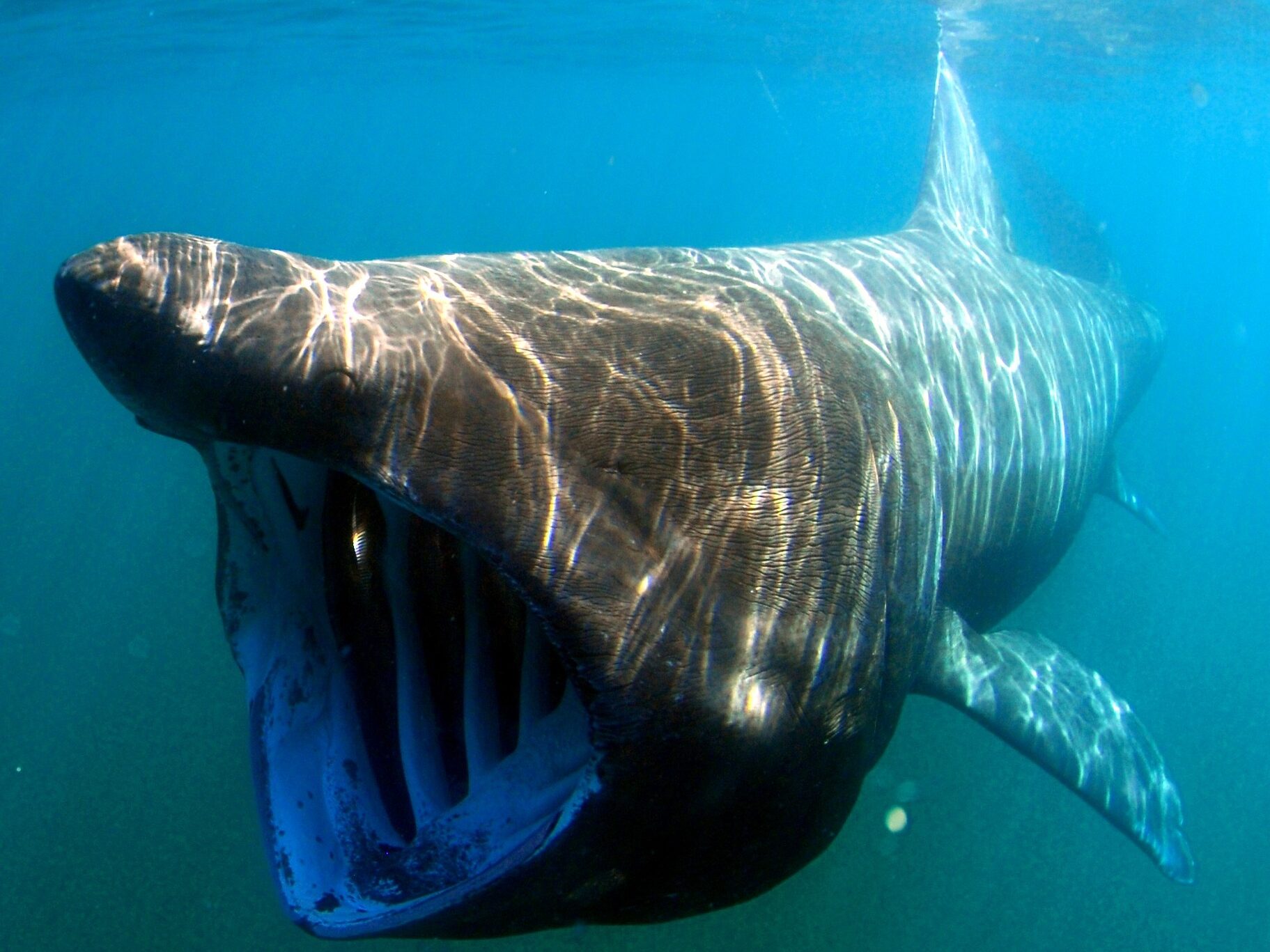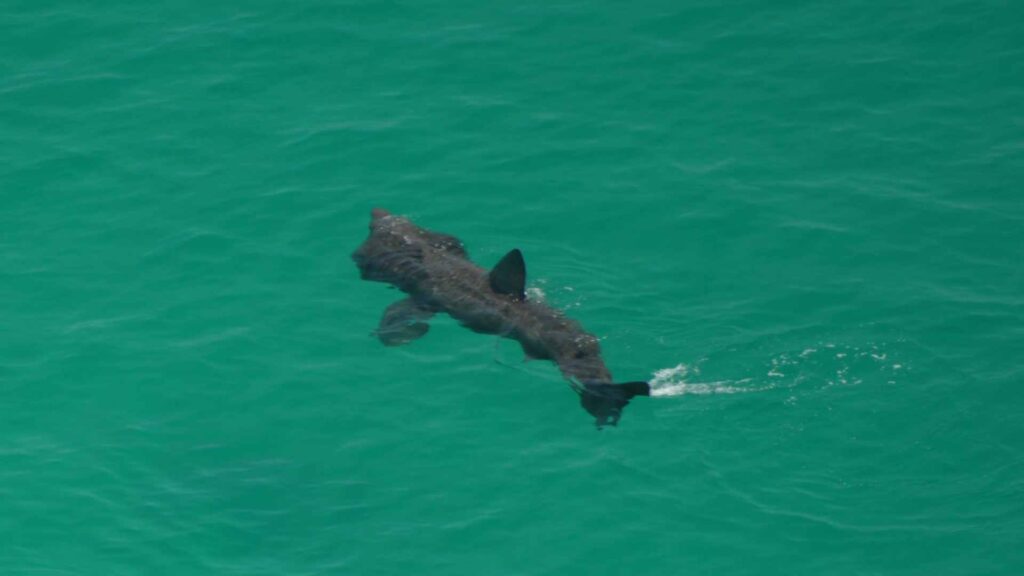A blog by Plymouth Sound National Marine Park CEO, Elaine Hayes.
Every year in Shark month we talk about how important sharks are, how most are not dangerous at all! You are more likely to be killed by lightening than by a shark! Only 3 species of shark have been recorded as attacking people and this is mostly as a result of being mistaken for prey or pure curiosity.

Sharks are amazing creatures who have lived on this planet way longer than humans. In fact, sharks first evolved over 400 million years ago – long, long before dinosaurs. However, because they are bony fish they don’t leave behind skeletons so we rely on the myriad of teeth that have been found to tell us more about their incredible life history.
Sharks are highly evolved – and have six senses – the usual five plus the awesome sense of electromagnetism that they use to sense prey and also to navigate across vast oceans – amazing!
Sharks come in a wide array of shapes and sizes and there are over 500 species – from the very well know – the Great White (although only medium sized in shark terms) to the very little known and rare dwarf lantern shark which would fit into the palm of your hand.
Far bigger than a Great White and found here in the UK is the fabulous Basking Shark. Basking sharks are so named as they filter feed near the surface of the water so seemingly are basking in the sun. But they need to be at the surface to find their food. Basking sharks eat the microscopic plankton that can be found near the surface of every ocean. They are incredible filter feeders and will filter around 2 million litres of water an hour just to find enough food to maintain their enormous size.

Basking sharks can often be seen off the Devon coast and have been spotted in the Sound but my favourite haunt for these is Berry Head where you can see their outline in the water from above on the cliffs and it is truly spectacular.
Basking sharks are classified as endangered, they were hunted in the UK until 1995 but the species is still at risk as it is often caught as bycatch in fishing nets and lines – its large size puts it at higher risk of entanglement. In addition they are at risk of boat strikes and disturbance in busy shipping lanes. Having a low reproductive rate doesn’t help their recovery either. Sadly it is estimated that 100 million sharks are killed each year both accidentally and for food. This is completely unsustainable and needs concerted action to ensure these incredible, charismatic creatures can roam freely in our seas.

Learn more about sharks, get involved in spreading awareness and fin-tastic events, visit our friends at The Sharks Trust

